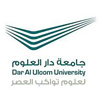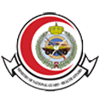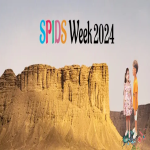SPIDS week 2024 topics, 12-09-2024
Managing Non-CMV and EBV Viral Infections in Patients Post Hematopoietic Stem Cell Transplant
Classical PresentationObjectives:
This presentation will cover:
The non-CMV and EBV infections in HSCT, their burden, presentation, and how they are frequently overlooked
Example non-CMV and EBV infections, their characteristics, and clinical presentations
Management of these infections
Other related issues
Broadening the Horizon: Fungal Diagnostics and Biomarkers
Classical Presentation
Objectives:
A state-of-the-art session, this presentation sheds light on an uncommonly covered aspect of fungal infection. It includes:
An overview of the challenges of diagnosing fungal infections
Introduction to fungal biomarkers, their sensitivities, and implications in the diagnosis of fungal infections
Types of biomarkers and their specificities in various fungal species
Novel fungal biomarkers
Fluoroquinolones Prophylaxis in High-Risk Hematological Malignancies: Pros and Cons
Classical Presentation
Objectives:
This presentation will address the following:
The use of fluoroquinolones as prophylaxis in high-risk hematological malignancies
The evidence that supports the use of fluoroquinolones
The indications for use, i.e., candidate patients
The advantages vs. disadvantages (effectiveness vs. adverse effects)
The recommended course (starting, dosing, and duration)
The Unmet Need of Sepsis Recognition and Therapy
(Co-organized with Saudi Critical Care Society) Theory/Interactive/Open Discussion
Session Overview:
In recognition of World Sepsis Day 2024 (Sept 13, 2024), this session emphasizes the crucial roles of physicians and healthcare professionals in early recognition and action upon sepsis. This session will cover a wide range of sepsis-related issues, from early identification to updated management recommendations. Express your opinion, share your knowledge, and join the SPIDS World Sepsis Day.
Antibiotics Myth Debunking for Infectious Diseases
Dual Presentation/Confrontation
Objectives:
In this unconventional presentation, widely believed and circulated antimicrobial myths will be debunked based on evidence and expertise. This antimicrobial misinformation varies from spectra of actions to pharmacokinetics and others. An eye-opening and practice-changing session—don’t miss it!
Myths in Immunocompromised Patients
Classical Presentation
Objectives:
This out-of-the-box session aims to defeat a wide range of misbelieved concepts and practices in the care of immunocompromised children. It examines common pitfalls and challenges faced by infectious disease practitioners during their daily care of this subset of patients. Conducted and addressed in a non-ordinary, yet very informative way.
Antibiotic Breakpoints Updates: A Whole New Story
Classical Presentation
Objectives:
A practice-changing session. By attending this presentation, you will learn:
- Terminology such as breakpoints, CLSI, and EUCAST
- Recent breakpoint updates from the CLSI and EUCAST for some antibiotic classes, e.g., aminoglycosides, piperacillin-tazobactam, etc.
- The rationale behind the changes
- The impact of the updates on clinical practice, particularly for aminoglycosides, expected challenges, and changes in recommendations
Hot Issues in Infective Endocarditis
Classical Presentation
Objectives:
This presentation will cover the updates on infective endocarditis, including:
An overview of infectious endocarditis, the recently proposed Duke criteria, and trends over the last decade
New developments in diagnosis, including advances in imaging modalities such as PET/CT to aid in early diagnosis
Updates on treatment, including:
The role of combination therapy in treating infective endocarditis
Indications for surgery, early surgical intervention versus conventional treatment options for specific causative organisms
The use of angiomas
Oral versus intravenous antibiotic therapy in clinical practice
Spot the Rash!!
Classical Presentation
Objectives:
A highly visual session that includes:
A demonstration of various infectious skin manifestations and diverse presentations of rashes that should be recognized by infectious disease physicians
Examples of common infectious and non-infectious skin manifestations (including atypical, unusual, and rare conditions)
Rheumatologic skin conditions that mimic infectious rashes
Other related conditions and scenarios
Common Surgical Complaints: Dos and Don’ts
Classical Presentation
Objectives:
This presentation focuses on common daily questions faced by almost all infectious disease practitioners related to:
Appendicitis prophylaxis, empiric treatment, duration, perforated vs. non-perforated appendix considerations, oral treatment, etc.
Necrotizing enterocolitis: Empiric treatment, broad vs. narrow spectrum, duration, etc.
Not Always Black and White: Infectious Controversies
Interactive Session
The final SPIDS Week Pearls is a unique and interactive session that highlights some of the controversial, yet common, issues in infection, where debates exist between practitioners and consensus is lacking. Whether in diagnosis or management, our panelists unite to correct knowledge, defeat myths as far as evidence is available, and provide support.
Examples of topics that will be addressed:
Repeating blood cultures with gram-negative bacteremia
The use of anaerobic coverage in aspiration pneumonia
Amoxicillin vs. amoxicillin-clavulanate in sinusitis
The Mettle of Tuwaiq: Vaccine Advances in Preventing Infectious Diseases and Perils of Vaccine Fatigue
Classical Presentation
Session Overview:
The long, formidable, and steep slope mountain, Jabal Tuwaiq, has become a symbol of perseverance and strength. Her book, "Principles and Practice of Pediatric Infectious Diseases," is equally massive, inspiring countless people every year.
With the launching of the SPIDS Week Named Lecture, it is no doubt that the first lecture will be dedicated to Prof. Sarah Long, recognizing and affirming her outstanding efforts in furthering the infectious diseases career and impacting thousands of physicians across generations.
In this featured lecture, Prof. Long will carry out her pivotal role as an active and core member of the ACIP, shedding light on updates and recent recommendations made in recent years. There is no better learning experience than learning from the original teacher. Wish you an enjoyable time.





